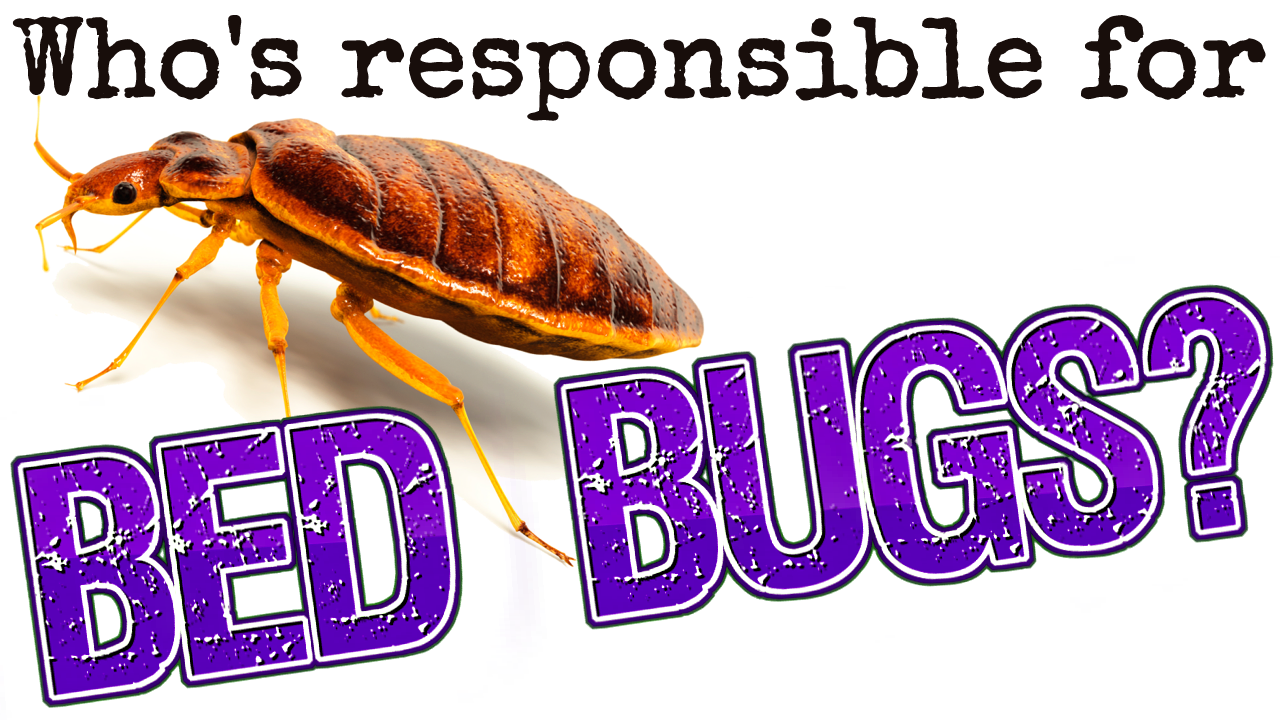Bed bug infestations are something no landlord or tenant ever wants to have to deal with. They bite, their tiny, and their tough to completely exterminate – thriving on blood, bed bugs can live up to a year without feeding.
Signs of Bed Bugs
- Shared/used mattresses or furniture are a common culprit
- Blood stains on sheets or pillow cases
- Dark or rusty spots of bedbug waste on mattresses, sheets, clothing, and walls
- Bed bug fecal spots, shells, or shedding skins
- A musty, foul odor
- Large or several small red blotches on skin (itchy welts)
How are Bed Bugs Removed/Exterminated?
- The rental property must be cleaned and vacuumed (reduce clutter and put items in plastic containers/bags)
- Blankets, sheets, and pillows must be washed (and kept isolated until the extermination is done)
- Encase mattress and box spring
- Install bed bug traps
- Apply repellent to socks, shoes, and pants
- Place small items in a freezer for four days
- Larger or heavily infested items (including mattresses) may need to be removed and replaced
- Cracks in the baseboards, windows, door frames, etc., should be treated and sealed
- The tenant needs to vacate while the whole structure is fumigated or just the unit is fogged (bug bombed)
Who’s Responsible for Getting Rid of Bed Bugs?
As a general rule, the landlord is required to maintain a habitable rental unit for the tenant. Bed bugs can come from neighboring tenants, previous tenants, and even the current tenant. So unless the landlord can reasonably argue that the current tenant is the source of the bed bugs, the landlord would have to coordinate the removal of bed bugs. After the initial round of treatment, the rental property should be inspected again. In most instances, there should be no need to relocate tenants. The landlord would cover the cost of the exterminator and any unit improvements, but the tenant would typically be responsible for laundering and cleaning.
Rental Property Bed Bug Laws
There are only five states that have legislation specifically addressing bedbugs in rental property (Arizona, California, Florida, Nebraska, and New Hampshire). For all other states, it’s common for the person/entity responsible for the source of the infestation to take care of the problem.
Arizona
A landlord may not knowingly rent a unit to a tenant that has a bedbug infestation. Tenants may not knowingly bring materials that have been infested with bed bugs into a rental unit. Landlords must provide tenants with educational materials related to bed bugs.
California
Beds in apartments and hotels that supply beds and bedding to renters must ensure that all bedding is clean and free of bed bugs. Linens must be changed before a new occupier occupies the unit. Hotel bedding must be changed before each new guest arrives.
Florida
Requires landlords to make reasonable provisions for the extermination of bed bugs in rental property.
Nebraska
Requires boarding homes to be constructed and equipped to prevent bedbug and pest infestations. Allows exterminators to be used to eradicate pests when necessary.
New Hampshire
It is a violation for a landlord to willfully fail to investigate or fail to take reasonable measures to remediate an infestation within 7 days (contempt and contempt damages).
Landlords are required to pay up-front for all bed bug remediation costs.
Landlords may recover costs for remediation in the tenant’s unit only, and only if tenant is considered “responsible” for the infestation.
The tenant is presumed to be “responsible” if only his/her unit has bed bugs and there have no other bed bug reports in the unit or adjacent units in previous six (6) months.
Landlords can evict “responsible” tenants for nonpayment, provided the landlord shows that he/she offered tenant a “reasonable repayment agreement.”
